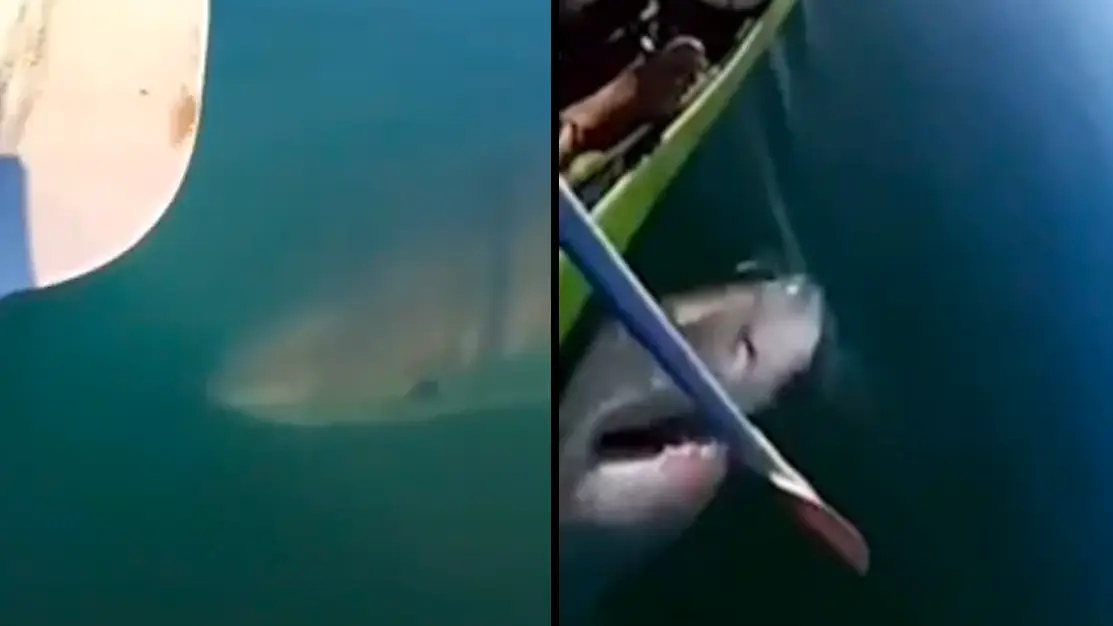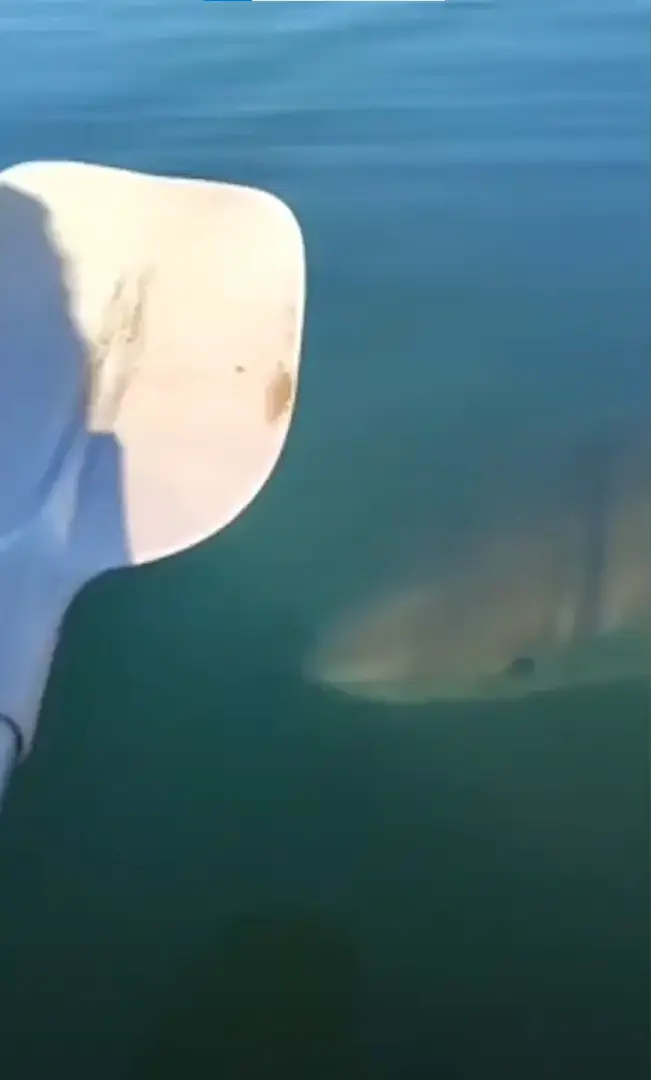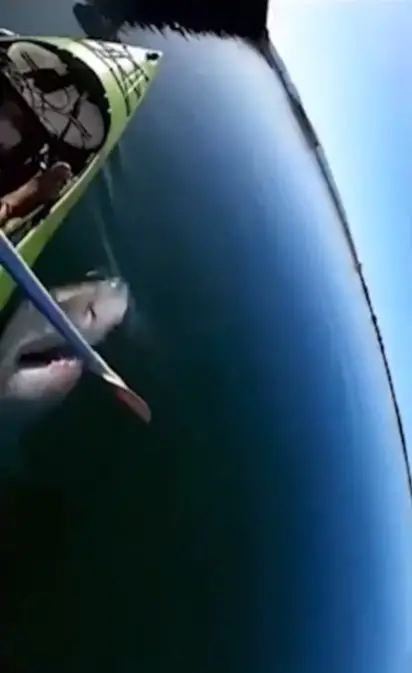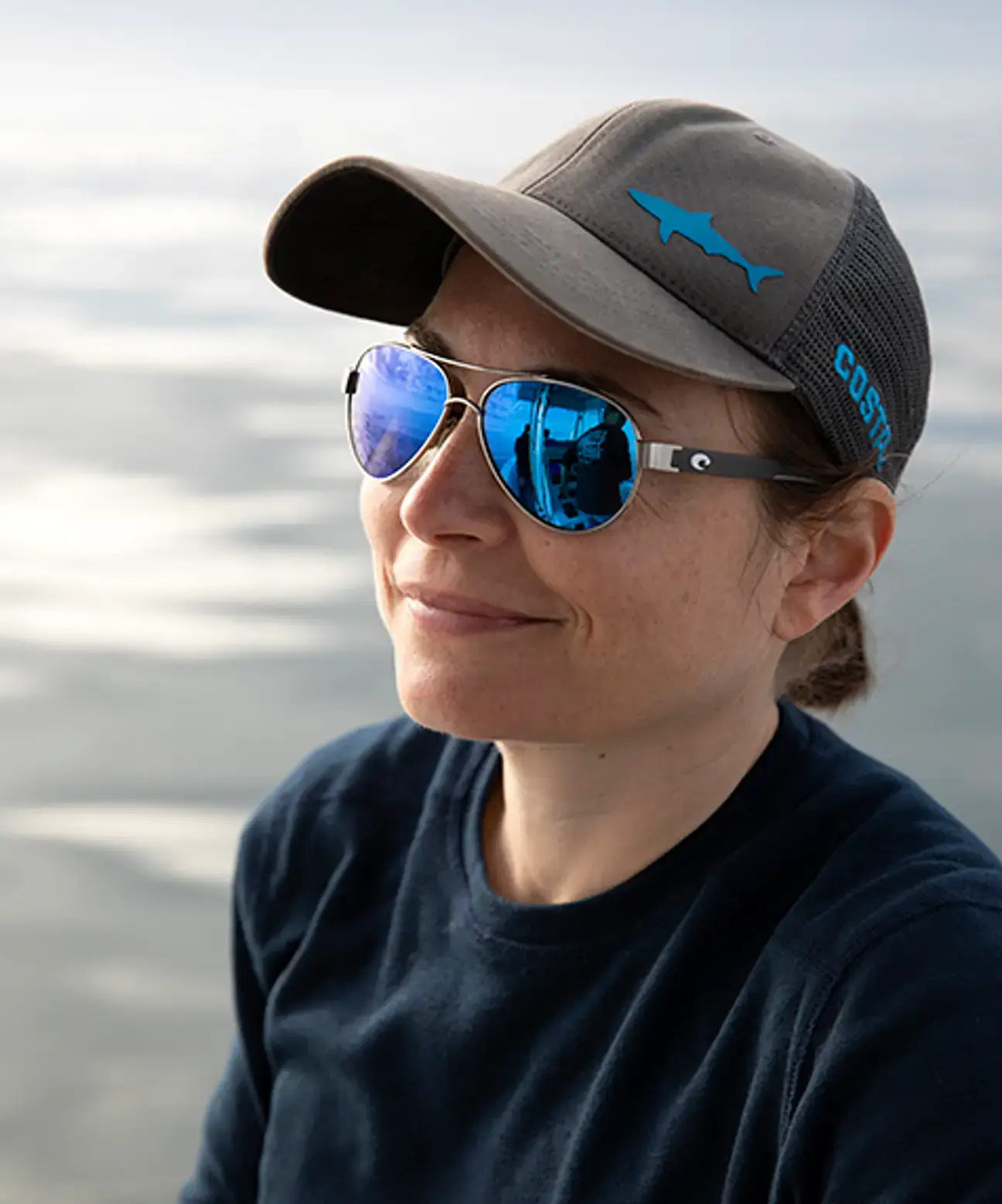
A kayaker has captured terrifying footage of a great white shark trying to take a bite of his oar. Watch the eerie clip below:
The footage was uploaded by Matthew J. Gorne who was able to catch the whole incident unfold on his GoPro.
Gorne says he was fishing in Spencer Gulf, 10km outside of Port Augusta, South Australia.
Advert
As shown in the clip above, the great white shark swam towards him and briefly went underneath the actual kayak, which sounds absolutely frightening.
Within a matter of seconds the shark returns to bite Gorne's kayak oar.

Thankfully Gorne and his oar were unharmed.
He told The Advertiser: "I know I'm stupid for going out there without a shark shield.
"I will definitely be investing in one now though."
A local council spokesperson said: "It's a spot where a lot of fishermen berley the water... fortunately for most sharks that come up here are usually well fed by the kingfish.
"Where there's big fish there’s often bigger fish."

When it comes to the UK, Dr. Harley Newton, chief veterinarian scientist at Ocearch, explained to LADbible how likely it is to find one in UK waters.
She said: “There is definitely a strong chance of a white shark swimming to the UK.
“We are, as a result of climate change, seeing some of the first shifts in their use of habitat. Some species are moving slightly northern to get to some cooler waters but overall that’s not a huge shift yet.
“When we land-based animals think of the environment in two dimensions, we forget the fact that the ocean is incredibly deep and vast. Just because we don’t see them on the surface, it doesn’t mean that they aren’t using the hundreds of metres beneath.”

Dr. Newton has been present for a significant number of the 84 successful white shark tagging expeditions conducted by Ocearch since 2016.
“I’ve never been scared,” she insists. “[Great] white sharks are a really interesting species that are extremely inquisitive and cautious. The bigger the animals get, the more skeptical they are of our boat and everything else that’s going on.
“[Great] white sharks aren't inherently dangerous to humans,” Dr. Newton added. “With any type of large, charismatic animal, when you’re interacting with wildlife, there are inherent risks and you need to be aware of your environment as a result.
“Over the last 30 years, there has been a slight increase in unprovoked bites from white sharks, but the vast majority of these interactions with humans are a cast of mistaken identity.
“There are cases where humans are just in the environment and sharks are going through their normal behaviours (potentially feeding on bait fish or prey in the area) and those incidents usually boil down to the sharks mistaking a human for the prey they are looking for.”
Topics: Animals